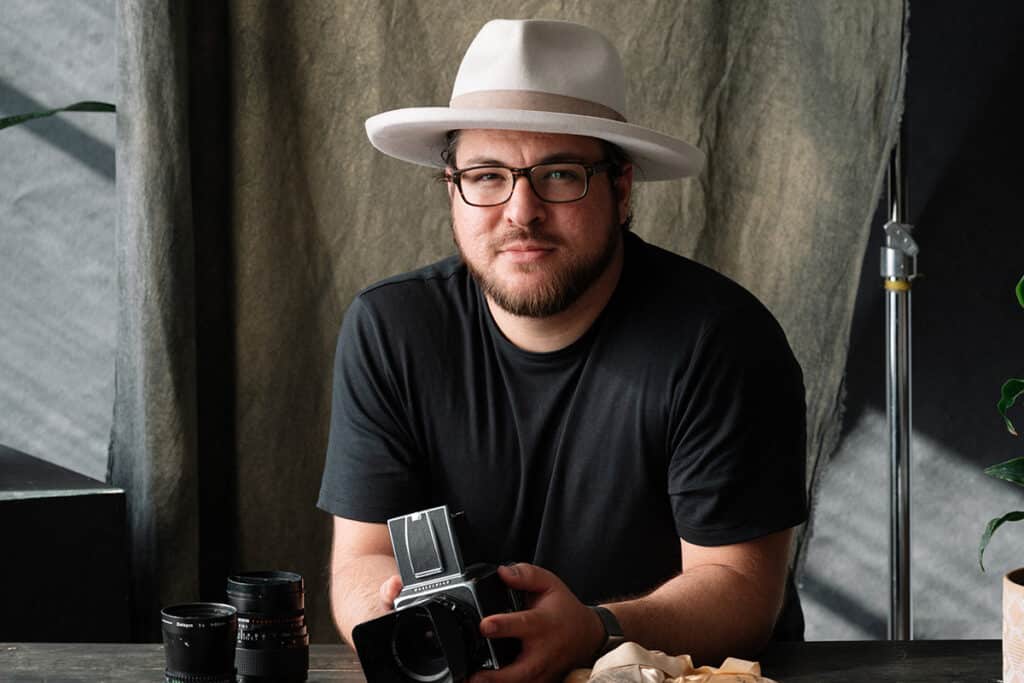Divorce has unfortunately become all too commonin contemporary society. Today, women initiate as many divorces as men, but regardless of who is the instigator, family dissolution is always a major upheavalfor both the divorcing spouses and their children.Yet life goes on; people cope, change and eventually rebuildtheir lives. Three remarkable San Antonio women share with us their own personal stories.
FINDING HER OWN VOICE
Margaret Priesmeyer Masinter’s marital story is a fairlyfamiliar one. Married at 21, the New Braunfels native followedher husband from city to city as he pursued hiscareer, bore and reared two children, did volunteer workand helped her spouse run a side business for a while.She didn’t mind the moving, and she was plenty busy.Altogether, it wasn’t a bad life, but as the years passed,her sense of unhappiness grew steadily. One day, she woke up thinking that she had beengoing through life “on the coattails of this man” and thatit was time for her to make her own mark on the world.Her husband was a university professor at the time, andshe was meeting his female colleagues, who had Ph.D.sand were successful in their own right. This realizationcombined with the growing difficulties in the marriage —there were control issues that became intolerable, shesays — pushed her to take a bold step toward change. At39, Priesmeyer enrolled in law school and suddenly entereda different world. No longer the respected facultywife and community volunteer, she had to adapt to the“low” status of a novice law student.
“That first year, I was scared to death,” admits Priesmeyer,now a successful family law attorney. “Everythingthat I was up to at that point seemed not to matter anymore.Your status was that of a first-year law student, andthat was it. Everything was new to me. It was like learning aforeign language. I remember shaking when I had to standup and speak in class.” But persistence and hard work paid off. Though she ultimatelymade it through with flying colors — gaining precious confidence in the process — her newly found independence did not help the marriage, and the couple divorced after 22 years of togetherness. Now she faced another set of challenges both as a new professional and a single mother. Having lived for so long with a partner who made most of the decisions, she needed to learn to navigate the choppy waters of daily life as a single. Even buying a car became a worrisome task. There were sleepless nights, she recalls, and doubts aplenty. Yet there was only one way to go, and that was forward. To establish herself as a lawyer, Priesmeyer at first accepted whatever court-appointed assignments she could get in addition to referrals from more established colleagues. She eventually joined the law firm of Johnson, Curney and Price, where she spent four years before hanging out her own shingle. Today, her practice handles all aspects of family law, probate, estate planning, wills and real estate issues. A member of the San Antonio Bar Association and a lecturer on divorce and family law, she’s also a fellow of the Texas Bar Foundation, a prestigious, invitation-only group.
Going solo was another gutsy thing to do so early in her new career. “It was a gamble,” she admits with a laugh, “but as a single mother, I needed flexibility in my schedule. I had a teenage daughter who was a handful, and I didn’t want to be at someone else’s beck and call. I liked having more control over my schedule and the cases I took. ” Through her clients, Priesmeyer has learned a great deal about divorce. Whether a couple is splitting up because of financial issues, different goals, infidelity or difficulties associated with blended families, her goal is to make the dissolution as amicable as possible, especially if children are involved. “If you have children, you’ll be seeing each other throughout the rest of your lives. It’s very stressful for the kids to have parents who hate each other,” she points out. “Children already have so much trouble with divorce. I am sure my own children carry wounds from that time. I have tried to compensate for that.” As for differences in men’s and women’s reasons for seeking divorce, the attorney observes that in years past men came to her because they already had another woman waiting in the wings, while women were usually unhappy about their husbands’ behavior or personality. Infidelity seems to be on the decline, however, at least among her clients.
Now remarried to musician and composer Tom Masinter, Priesmeyer says she was attracted to him because he was so different from anyone she knew. He introduced her to the world of theater and music in which she now participates as a patron and board member of the Alamo Theater Arts Council and the San Antonio International Piano Competition. Yet, she retains a telling measure of independence. In an arrangement that may become more common for second marriages, the spouses maintain separate residences.“ My husband is a piano teacher, and he works on a lot of stage productions as music director,” she explains. “He also restores old pianos. There are lots of rehearsals at his house — students and pianos. His residence is basically a place of business. I have a stressful job, and when I get home, I need order and quiet. So we each have our home the way we want it. We married later in life, so we have our habits and likes and dislikes. I would say we have a better relationship because we have separate residences.” Though she can foresee a time when their arrangement may change, she is fairly comfortable with things as they are: “I am happy that I was able not only to take care of myself but also to help my children become the successful adults that they are. I have a very good life.”
Reinventing herself
The Paseo ladies’ boutique is a bright little shop right next door to the Adelante Mexican Restaurant, just a few blocks down the road from the McNay Art Museum. Opened a couple of months ago by Lucie Frost and her friend Kathy Kelleher, it sells women’s clothes, accessories, jewelry and gifts in a relaxed, inviting atmosphere. For Frost, who went through a painful divorce just two and a half years ago, the shop is a new beginning. Formerly a lawyer dealing with employment issues at the high-pressure Fulbright & Jaworski firm, post-divorce she wanted more freedom and flexibility in her work. When she considered her options, store ownership looked like the most exciting choice. “It’s a pay cut for me, but I like the casual, happy environment and the fact that we can set our own hours,” she says. “I am almost giddy to be here.” But getting “here” was not easy. After a 19-year marriage to her college sweetheart and three “amazing boys,” her husband’s request for divorce was an earth-shaking event. “It was very difficult for me. I absolutely fell apart,” she admits. “I thought I would never get over it, never be at peace again.”
Realizing that that there was nothing she could do to save the union, she agreed to a “collaborative process”, which brought the separating spouses and their lawyers together to hammer out a deal regarding custody and division of property. The divorce became final in just four months. The speedy resolution was beneficial for both her and the children “from a healing perspective.” Fighting about things was not her style. Still, to cope with the aftershock, Frost — who resumed her maiden name — quit her job at the law firm to stay home with the kids. “I felt that my boys needed more attention, and so did I,” she explains. “The kids needed someone to focus on them. I was there to help them through the emotions they had when they had them. Those didn’t always come after 6 p.m. when I got back home from work. They were angry, sad and confused. Fortunately, I was in a position to take time off.” She credits therapy, anti-depressants and a good support system for helping her through her own emotions. Her mother and a couple of friends were always there to talk to, and a wider circle of friends threw a big birthday party for her to show their love. In addition, like many wounded people trying to redeploy their wings, Frost sampled a range of different experiences, such as taking Italian classes at SAC, swimming, playing bridge and getting more involved with the kids’ schools. None proved as satisfying as work, so she knew that eventually she would need to decide on a new career.
Therapy continues to be part of her life today. Despite finding herself in a sunnier spot for the first time in several years, she still needs that shoulder to lean on. You don’t want to bore your friends, she notes, but you still need to talk. Through it all, the new divorcee never spoke negatively about her ex. “There’s nothing more distasteful to me than women bad-mouthing their husbands around town,” she says. The former spouses share custody of the children, though the boys live with her. Unfortunately, she can’t entirely avoid running into her ex and his new wife at various functions, an unsettling and challenging experience, to say the least. Though she hasn’t started dating again, at 44, she is certainly leaving the possibility open. But at present, her attention is on her new business. Partner Kathy Kelleher, who was a buyer for Dillard’s, brings in the retail buying experience the shop needs, while Frost is the organized one who handles the business side of things. To the delight of the owners, the store reached its first-month goal in the first two weeks, but now they have to maintain that momentum. At the time of our interview they had dreamed up a marketing strategy that would give every woman seen wearing Paseo’s clothes a 20-percent discount card.
The boutique carries Christopher Blue and Bishop of Seventh jeans, Hale Bob tunics, handmade purses from South Africa signed by the women who made them, fair-trade items from Thailand, some shoes and a lot more. “Lots of denim and lots of colors and prints,” says Frost while giving me a tour. “We are trying to offer unique things.” Does she have some advice for other women facing what she’s been through?
“The most important thing is to know that you will be OK again and to hold on to that, as hard as it may be to believe at first,” she says. “Find the strength to do what’s best for your children. It’s going to be hard; I so know that. But focus on the kids. Ultimately, everybody will be better off.”
Transforming Experience Into art
Dancer/choreographer Erica Wilson-Perkins remembers fondly her first encounter with the man she would eventually marry. While back home in Colorado Springs following her college graduation, the young dancer worked as a sales clerk to make extra cash. One day, a handsome Army guy walked in, browsed around and picked up a coat to buy. It soon transpired, however, that he didn’t really need the garment; he wanted to meet the saleswoman. The two eventually became engaged, but she spent the next couple of years pursuing a master’s degree in choreography at Florida State University while he obtained a transfer to Columbus, Ga., to be as close to her as possible.
A talented and ambitious artist, Wilson-Perkins had no trouble getting job offers. At 25, she became a professor of dance at the University of Illinois in Urbana and the couple married on Dec. 27, 1995. In her new post, the young professor developed jazz dance and Pilates Method courses and founded a performance company with her students. Things were not as upbeat for her spouse. “My husband left the military but was not happy about it,” she recalls. “And I knew our situation wasn’t right. I was 25, hanging out with the big boys professionally and enjoying what I was doing, while he worked as a paralegal, but it just wasn’t his thing.” He eventually gave up on civilian life and went back into uniform as a member of the National Guard, but his career-oriented wife kept him on the move. When frictions in her academic department turned life unpleasant in Illinois, Wilson-Perkins moved to Wayne State University in Detroit. By this time the couple had a son, who is now 13. Though her husband transferred to the new city, the union did not last much longer. They separated after only five years of living together. “You know, when I told my mother that I’d be talking to you for this article, she frowned and wondered whether I should be doing this,” says Wilson-Perkins, who is today the lead dance instructor at Palo Alto College. “But it’s part of the healing process. I am finally in a place where I can talk about it. Now I can see our story from both perspectives. He saw my determination about my work and my performing company (the CounterGroove Dance Co.) and responded in a way that wasn’t all that supportive. He was probably resentful. What the company was to me, I was to him. He focused on me. Unfortunately we did not have God in our lives then. If we had, now I can see how it would have helped us. Also, our families were not too supportive.”
Eventually, he became angry, and things went downhill. She saw a counselor for a while before making the decision to leave. “It was very traumatic. We had some scary times during the breakup,” she admits. To get away, she moved once again, this time to Chicago, despite the fact that her career was flourishing in Detroit. Lonely and dispirited in the new city, the young mother intensified her search for a spiritual home and, thanks to an interesting series of developments, found what she was looking for. “I’ve been on that journey ever since,” she says simply. “People who knew me from before are floored by my amazing transformation.” Her personal turmoil found its way into her choreographic work, which eventually won her new recognition in Chicago. “If I chronicled all my work, it would tell my personal story. That’s how parallel to my experience it is,” she notes. But, of course, being the consummate artist that she is, the work is never literal or directly representational. Out of that period came her FightWater: Past/Future — Never Present, a full-length solo piece funded by the Chicago Dancemakers Forum. “It was so much about my salvation,” she says. “What you see in my pieces is me responding to all I am going through. I tell my students why we dancers don’t need a psychiatrist. Our work helps us heal,” says the choreographer. In San Antonio, where she moved in 2006 to be close to her parents, Wilson-Perkins has built the dance department at Palo Alto from seven dance majors three years ago to 22 this year and formed yet another student company, PACDance. Writing in the Dance Umbrella newsletter in the spring of 2007, Suzanne Dunmire concluded her short piece by saying, “I want everyone to know what a dance treasure San Antonio has in Perkins. And on top of it all, she is a wonderful and graceful human being.”
With the passing of years, Wilson-Perkins has become friends with her ex. Though remarried, he calls her often to discuss issues in his life, and their son always spends summers with his dad. For her part, she’s never dropped the Perkins half of her last name, which is his surname. And she echoes what Priesmeyer said about divorced parents: “Once married, you are always connected to that person.”
It is interesting to note that in a way her marital story is the reverse of Priesmeyer’s. While the latter felt too dependent and yearned for her own voice, Wilson-Perkins recognizes that her “sense of independence was transferred to the marriage. I didn’t allow my husband to be the husband,” she admits. “Young women should understand the beauty of their role as wives, and men should embrace the strength of their role as husbands. We need each other.”




